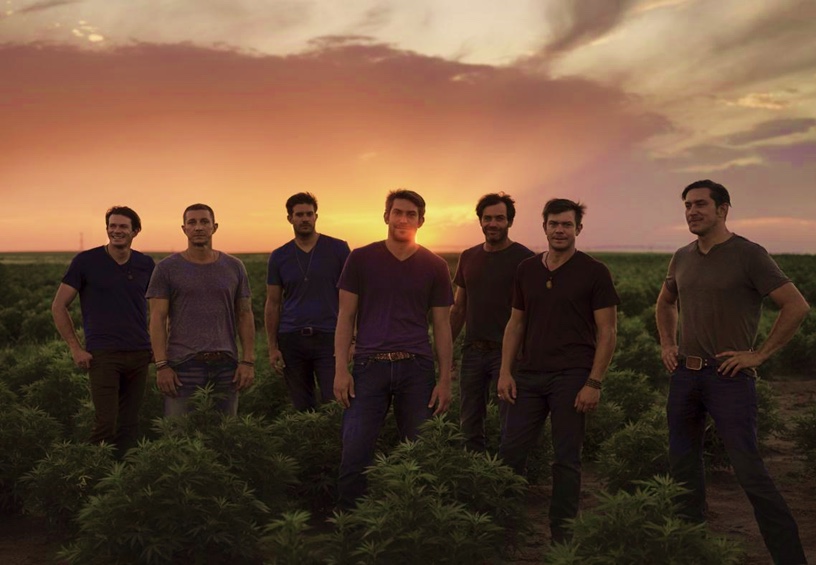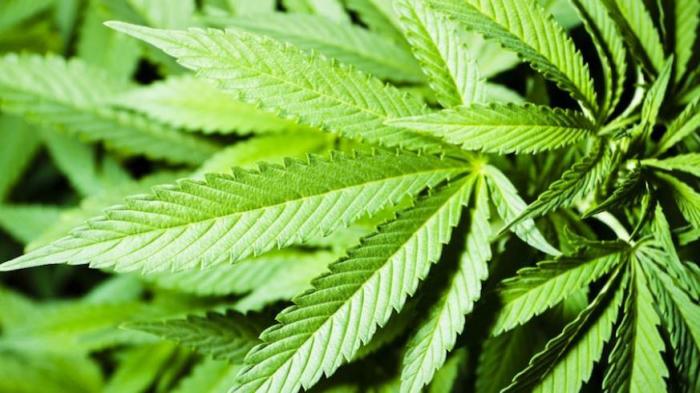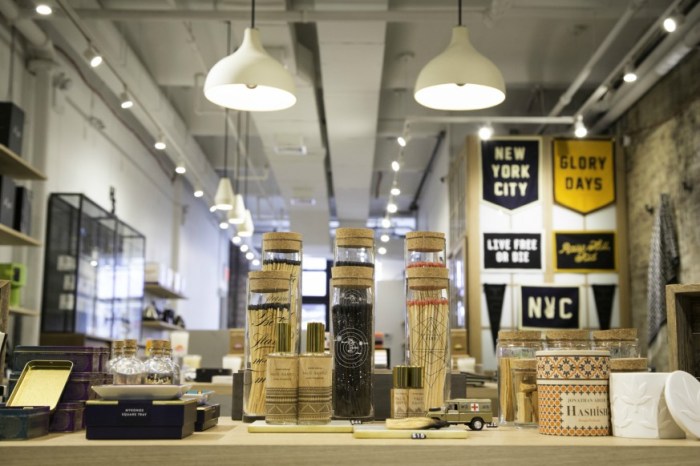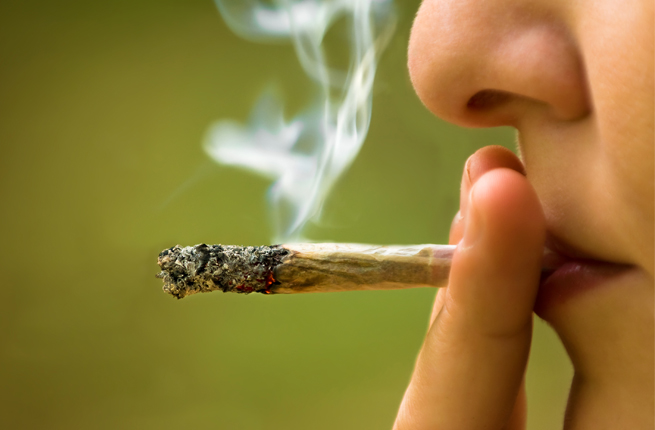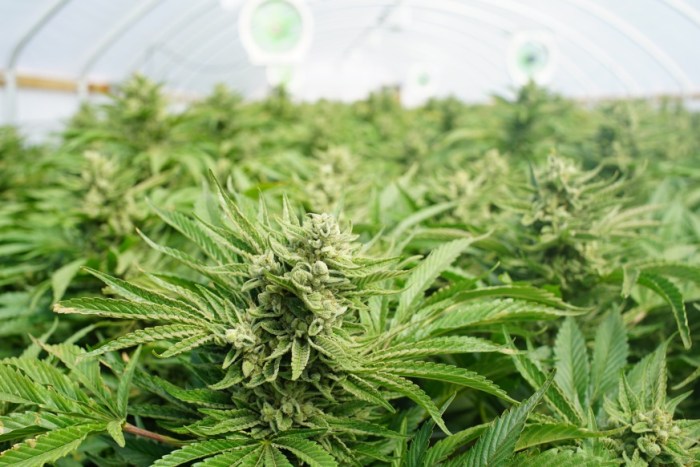While some people like sugar and milk in their morning coffee, you may have noticed another option popping up at your local coffee shops that can ease you into your morning routine in a different way. Cannabidiol (CBD) is a non-intoxicating and low-THC-content supplement made from cannabis that is perfectly legal in small doses and has been exploding all over the country.
Possibly the brightest star among all of the newer CBD companies is the Colorado-based Charlotte’s Web. Started by the seven Stanley brothers — Joel, Josh, Jesse, Jared, Jordan, Jon, and J Austin — the company gets its name from a young girl named Charlotte Figi. Using CBD, Figi, who had a unique form of epilepsy, went from having almost 300 seizures a week down to close to zero. The company has since become a global phenomenon worth $1.4 billion.
We spoke with brother Joel Stanley about working with his brothers and how the perception of CBD is changing.
What was your initial introduction to CBD?
This goes back to late 2008, when I first started reading about cannabis in general. My older brother, Josh, had started one of the first dispensaries — this was back when the controversy had first started to heat up. I didn’t work in the industry at the time, I worked in the oil [industry] with my wife and kids, and I kind of laughed at what my older brother was doing. I didn’t see any problem with it but I didn’t see cannabis as a medical thing because most people didn’t back then. When I started to read, I saw that there had been all of these studies, most of them not in the U.S., performed on various types of cannabis. That was the first time I saw the word cannabidiol. There were just a handful of research papers out there on it, but [they were] saying it shows a lot of promise.
That began to convert me to believe that this plant could be very helpful, and from there I jumped into the industry with my younger brother in early 2009. We had an interest in finding CBD.
Back then in the medical cannabis industry, there were just a handful of researchers who could pronounce the word “cannabidiol.” It was just so rare. You know, they had spent all of these years of breeding up the levels of THC, and you can’t breed up THC without losing the natural levels of CBD. It was just really low in concentration in almost every medical cannabis variety, so we began looking — we actually had to kind of go back to natural to find higher levels of CBD. Really, most of today’s CBD genetics have come from wild hemp and sterile hemp.
We had begun seeking and breeding for a genetic [variety] that was specifically higher in CBD. The reason that we were doing that was because we had worked with so many folks who had benefited from medical cannabis, but didn’t necessary like the high, the euphoric effect.
It’s different for everybody. For some it’s a pleasant experience and for others it can be a little more anxious and nervous [of an] experience. We were looking for CBD to help some clients at home who might not need that high level of THC.
What do you think is the last threshold to cross that will eliminate the stigma around using products derived from cannabis?
I think it’s rapidly changing right now. From when I entered the industry to where it is now, there’s a massive difference in how people are talking about it, and again it’s because everyone has someone in their circle — or many people — who are benefiting from CBD. If those categories continue to expand, it’s not going to get smaller.
You know, it’s been impactful enough for individuals’ lives that people are out there screaming on social media about how this is helping them, so I don’t see this phenomenon going away.
I think the true barrier and threshold is when CBD and hemp and cannabis go under physician advocacy and that will happen when we have the data — and the research has just begun. But that’s what’s coming and once we have physician advocacy for states to recommend CBD or medical marijuana, when we have that data, that will be the last tipping point.
What was it like getting all of your brothers on the same page to start this business together? Was there some convincing over whether or not it was a good idea?
Well, you know, kudos to Josh my older brother for being the pioneer. I’ll tell you a story that was my final straw — and I was probably the most difficult one to convince and probably the most conservative of my brothers, which isn’t saying too much.
I was the only one with a kid at the time. I flew out to Denver to see Josh’s dispensary and to spend some time with my brothers. We went to a John Prine concert. This had been my first day off in a very long time and I got to see their dispensary. I walked in and, as luck would have it, the first three people who come through the door after me are three cancer patients. Each of them had a different story in a different stage of cancer. Each one of them was going through an intense round of chemotherapy, had lost hair, and were people you could really feel for. And each one of them had the story that without their use of cannabis, they would not be eating and they wouldn’t have survived the intense treatment. They wouldn’t have been able to sustain their body without eating and sleeping. That sold me immediately.
Now, I can look at it and say, “Oh, in high school we called it the munchies.” And I never thought of that as therapeutic. But I was like, oh, you have a wasting disorder, whether chemotherapy or something else. I can kind of see how that one simple positive side effect of cannabis can help so many people.
Since then, I’ve spoken with hundreds, if not thousands, of people who have had similar types of benefits, like the tens of thousands of people with Charlotte’s condition whom this is working for. I was sold back then by those first three [patients], and I knew that I didn’t really like the oil field per se, I didn’t really like my job, and I knew I could get behind this. It’s new. It’s controversial. It certainly was risky, and when I called the rest of my brothers, I think they were already on the same page. They already had done a little bit of research, knowing that Josh had started a dispensary, so they were already on the same page. I didn’t have to convince them that much — I think it was me that had to be convinced.

